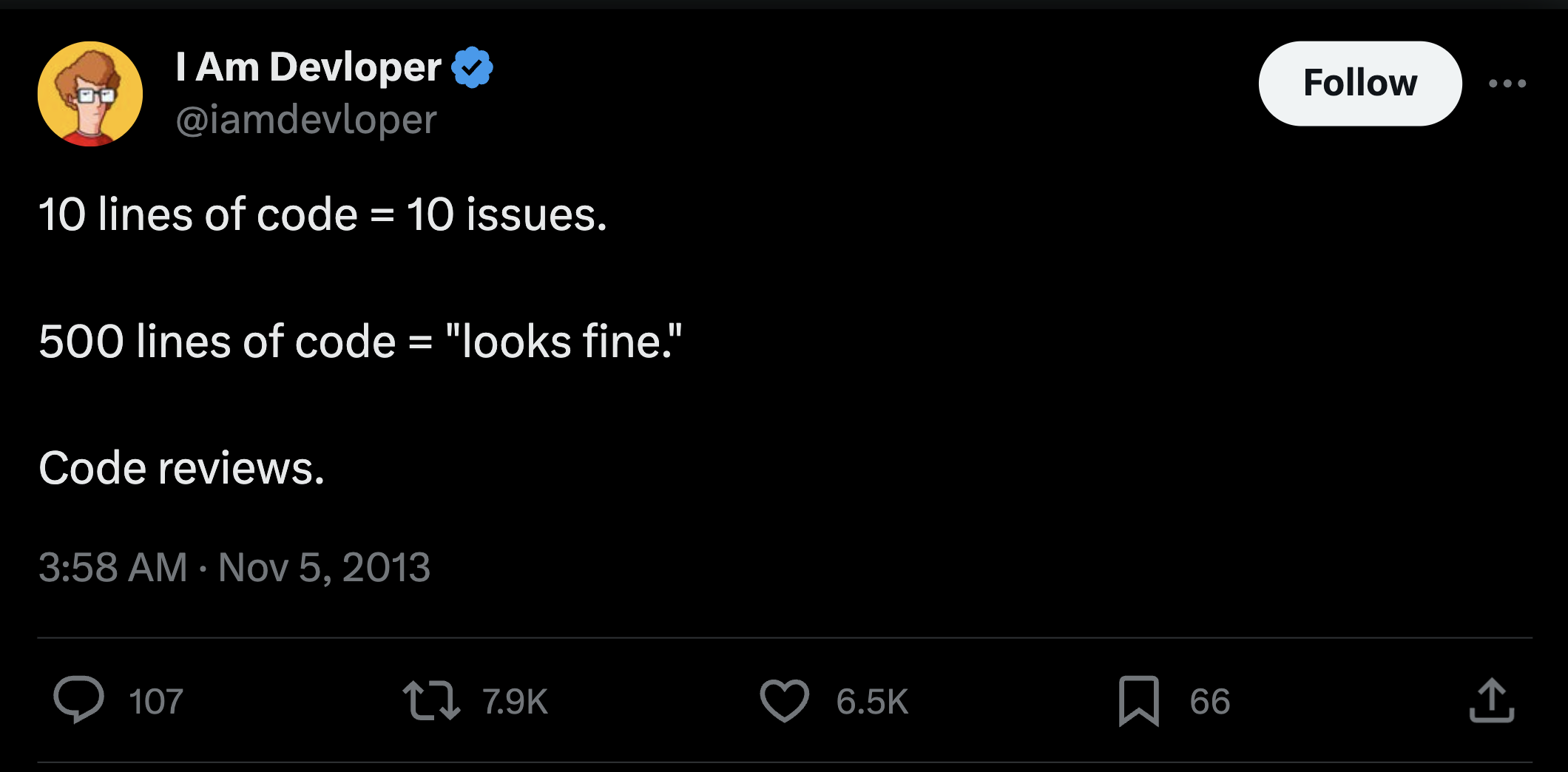- cross-posted to:
- hackernews@derp.foo
- cross-posted to:
- hackernews@derp.foo
Reads more like a page designed to funnel you into their product IMO
Pretty much
Imagine if a trumpet cleaning supply company wrote up an article about the importance of cleaning your trumpet regularly, and somewhere in the article they mentioned something like, ‘oh and you can use your trumpet cleaning spray to clean your trumpet’. Does this mean the information is incorrect? No? Any more or less valid than some dude named Craig on YouTube showing you how he cleans his trumpet? I don’t think so?
Yeah it’s an ad, but it’s an informative ad from an organization that obviously has some passion for the area of their product. I think it would actually be kind of weird if a company that does version control had absolutely no documentation on what version control best practices are.
Best practices for minimizing complexity:
- Try out “stacking”
- Simplify software design
I didn’t say there wasn’t information in there but the above paraphrased quote goes to the heart of what my comment was about.
Firstly, how is purchasing their product considered a “best practice”? It’s not generally accepted or the standard superior option by any stretch of the imagination.
Secondly, the option they give to minimizing complexity is to simplify your software design. Ignoring a couple problems with this statement, if they’re being honest this should be above the recommendation to “try out stacking”.
It doesn’t have to be that deep. You can give it a quick read and take from it what you will, but it is an ad for their product more so than it is an article that contains broadly useful information. They have every right to do so and maybe their product really is tremendously great but I’m just calling it how I see it.
Graphite is ok, but honestly it’s a solution in search of a problem
Maybe if you have a massive pr, splitting it up like this works, but that’s really a planning failure. Stories should be smaller, and if you need to keep them separate for a long time, use feature branches
Feature flags are another solution. Merge the code, but have it disabled on prod until you enable the feature flag (when the whole feature is complete and deployed)
I’ve only ever worked in one codebase that didn’t need feature flags, and even then we could have used them.
Everyone remember to downvote ads
The “review after merge” guy isn’t looking quite so insane now. Stacking PRs? Really?
What’s the story behind this? It sounds interesting.



